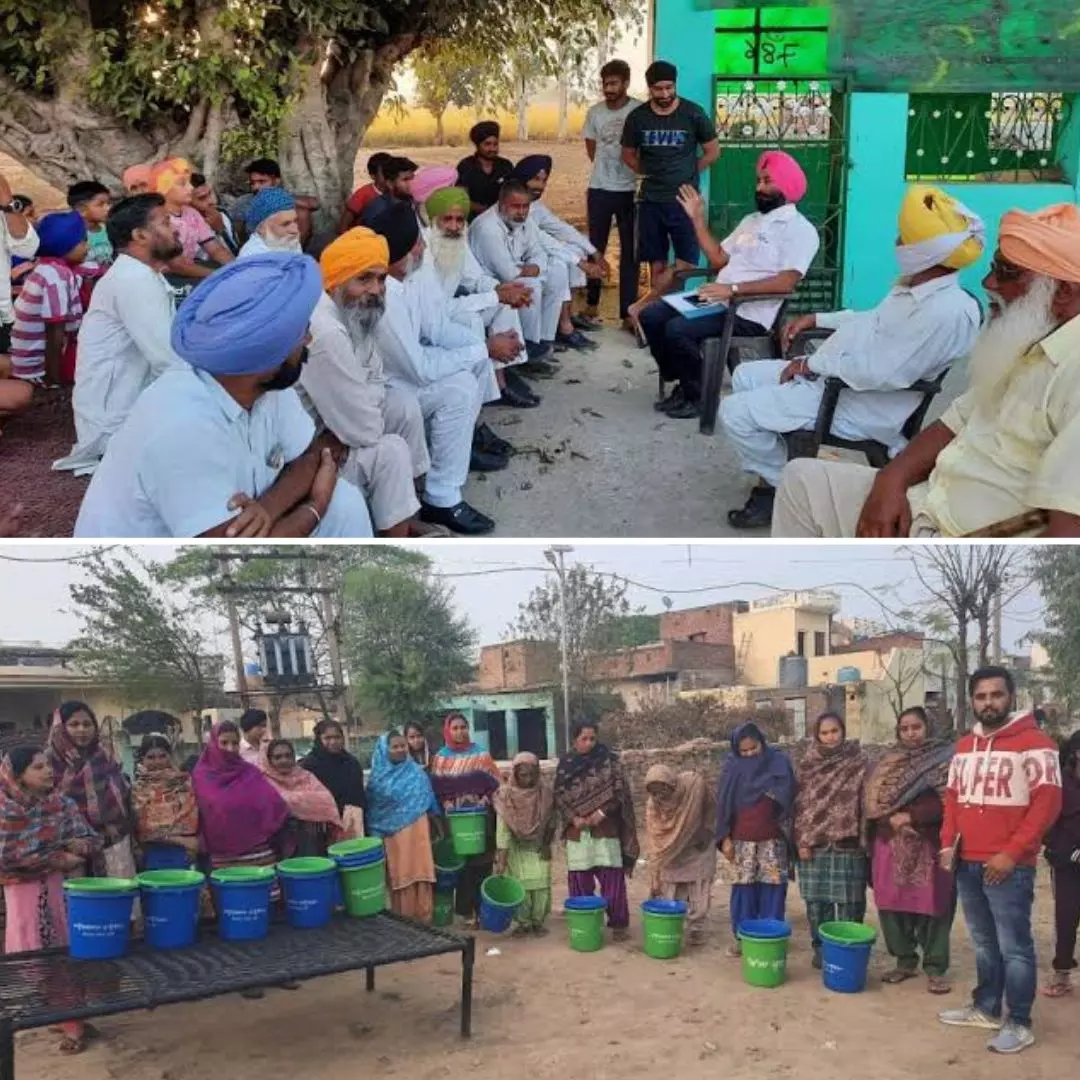Setting examples in managing waste scientifically, the Peroshah village in Punjab’s Gurdaspur district has proven that so much can be achieved even with the littlest of resources. The village, with a population of a little over 1,000, has earned national-level recognition for managing solid and liquid waste properly and maintaining a clean environment. Recently, on March 4, the village sarpanch, Harjinder Kaur, received the ‘Swachh Sujal Shakti Samman 2023’ award from President Droupadi Murmu for the village’s commendable work in the sanitation sector.
An ODF+ Village With National Recognition
The village’s efforts towards a clean and Open Defecation Free (ODF) space were recognised during the event organised by the Ministry of Jal Shakti in Delhi. It looked toward honouring the women achievers who have contributed towards the cause, and through Harjinder Kaur, the village has been brought to the limelight. Kaur conveyed that it was a proud moment receiving the award and hearing the President asking people to take inspiration from their village.
Peroshah was declared a model ODF Plus village recently for fulfilling the criteria stipulated in the Swachh Bharat Mission-Gramin guidelines. As per the mission guidelines, the title of being ODF plus is given to villages that sustain their ODF status while ensuring visual cleanliness and proper solid and liquid waste management is maintained religiously. Praising Peroshah and its people, Punjab Water Supply and Sanitation Minister Bram Shanker Jimpa stated that the government aspires to see every village transform into a model village. Adding on to it, he also noted that the sanitation department is working diligently to ensure cleanliness and water supply to every village in Punjab.
Measures Adopted To Ensure Cleaner Surroundings
A resident of the village, Sukhraj Singh, said that the village effectively manages its solid waste by generating several kilograms of compost. A dedicated solid waste management and water treatment plant have been set up in the village for this purpose. Even the simplest ideas of compost pits have been established to help villagers convert wet waste into compost.
They have shown that even without the most advanced tools and resources, waste management can be carried out traditionally and scientifically. Residents no longer dump garbage on the empty plots and instead have adopted a systematic way of treating both solid and liquid waste. The villagers had studied about four years ago how to treat wastewater effectively, and by 2019 works were in place to set up the village’s first-ever plant. Today, even the dirty water does not get thrown out and instead is being purified and utilised for irrigation and other purposes. According to a report by The Print, they have also laid down proper underground pipeline systems that ensure clean water supply reaches the fields.
Also Read: Gold Coin For Plastic Waste! Know About This Kashmir Village’s Unique Clean-Up Mission
https://thelogicalindian.com/h-upload/2023/03/17/500x300_230606-untitled-design-4.webp
Environment
2023-03-17 08:44:49.0
This Punjab Village’s Waste Management Techniques Receive National Recognition












